Misleading informations and untruths about Coenzyme Q10 makes selecting a quality CoQ10 nutritional supplement a difficult and confusing problem for the general public.
My name is Ross Pelton, and I “brand” myself as The Natural Pharmacist. I am deeply interested in and passionate about Coenzyme Q10, which is a critically important biochemical compound and a critically important nutritional supplement.
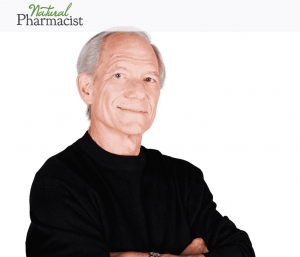
Because I am a natural pharmacist and nutritionist, I recognize that most people in their middle and senior years are going to need a daily Coenzyme Q10 supplement. The simple fact is that from our 20s on, most of us synthesize less and less Coenzyme Q10 as we get older. The absorption rate of many CoQ10 products is very low. The situation is further complicated by many misleading marketing claims for some of the CoQ10 supplements.
The internet has rapidly become a vast source of information – and misinformation.
In the journal Antioxidants, authors Mantle & Dybring [1] have reviewed the available literature about the absorption, transport, and bioavailability of the bio-nutrient Coenzyme Q10.
They have found that some manufacturers of CoQ10 products have made incorrect marketing claims for ubiquinol products.
In the text that follows, I would like to summarize the main points than Mantle & Dybring have made in their review paper.
What is Coenzyme Q10 and Why is it Important?
Coenzyme Q10 is an essential bio-nutrient that has vitamin-like qualities but cannot be considered a vitamin because our cells can synthesize it. However, as humans age, the biosynthesis of CoQ10 declines [2].
Another important issue is the fact that many commonly prescribed drugs inhibit the biosynthesis of Coenzyme Q10. I am the author of the Drug-Induced Nutrient Depletion Handbook. In that book, I listed the drugs that deplete Coenzyme Q10, which are: are oral contraceptives, hormone replacement therapy (HRT), tricyclic antidepressants, adrenergic stimulants, thiazide diuretics, antipsychotics, statins, most chemotherapy drugs, beta-blockers and oral hypoglycemics: both sulfonylureas and biguanides [3].
Although the Drug-Induced Nutrient Depletion Handbook is out-of-print, I recently created a Quick Reference Guide to Drug-Induced Nutrient Depletions. I am offering readers of Q10facts.com the following special offer. Utilize the following link to get a FREE copy of my Quick Reference Guide to Drug-Induced Nutrient Depletions.
www.naturalpharmacist.net/dind
Coenzyme Q10 is required for the process of ATP energy generation, and it is also one of our most important antioxidant nutrients, which protect against oxidative damage caused by harmful free radicals [4]. There is also evidence that CoQ10 supplementation is associated with a reduction of inflammation and improved endothelial function. Both, in turn, are associated with better heart health [5,6,7].
Collectively, the benefits from Coenzyme Q10 are so important that I refer to Coenzyme Q10 as a life extension nutritional supplement because it slows down the process of biological aging and promotes healthy longevity.
The Formulation of a CoQ10 Supplement is Critical
Commercially available CoQ10 supplements vary considerably in their formulation, and, as a result, many CoQ10 products have very low levels of absorption and bioavailability. Simply put, many CoQ10 supplements DO NOT provide much benefit due to poor absorption.
Poor absorption means people will get only minimal (or no) improvement in cardiovascular function, relief from migraine headaches, improved physical performance, and relief from the muscle pain and weakness that often occurs in people taking statin drugs. This muscle pain and weakness condition is called rhabdomyolysis, and it is a direct result of statin-induced depletion of Coenzyme Q10.
Manufacturing a quality CoQ10 supplement is difficult because the melting point of Coenzyme Q10 is about 20 Fahrenheit degrees higher our human body temperature. Consequently, like water turning to ice when the temperature drops below 32 degrees Fahrenheit, Coenzyme Q10 generally crystalizes at temperatures below 118 degrees Fahrenheit. We cannot absorb “clumps” of Coenzyme Q10; we can only absorb single molecules in solution.
When the contents of Coenzyme Q10 capsules from many commercial CoQ10 supplements are examined under a microscope, crystals or “clumps” of CoQ10 can be seen. This explains why so many Coenzyme Q10 products on the market have very poor absorption and provide only small increases in plasma CoQ10 levels.
There are really two problems. First, some manufacturers have failed to establish a manufacturing process that successfully keeps Coenzyme Q10 in solution. Secondly, some companies are making incorrect and misleading claims for the absorption and bioavailability of form of Coenzyme Q10 in their CoQ10 products. Coenzyme Q10 buyer, beware!
The Form of the Coenzyme Q10: Ubiquinone or Ubiquinol?
Much of the misinformation about CoQ10 supplements comes from companies that claim that the ubiquinol form of CoQ10 is better absorbed than the ubiquinol form.
In this context, I refer people to the study conducted in 2019 by Lopez-Lluch et al. [2019] in which researchers evaluated the bioavailability of seven different CoQ10 supplement formulations after having given the same 100-mg dose of each formulation to 14 healthy individuals in a crossover study with a four-week washout period between each administration [8].
Two outcomes of this study are of particular interest:
1) Comparing bioavailability of two identical ubiquinone products utilizing differing manufacturing processes. Two of the tested CoQ10 formulations used the same ubiquinone form of Coenzyme Q10 and contained the same excipients but were manufactured using different heating and cooling processes. The CoQ10 product that is manufactured utilizing a patented crystal dispersion heating and cooling process was shown to achieve 4 times greater CoQ10 bioavailability over a 48-hour period compared to the similar ubiquinone product without crystal dispersion.
2) Comparing the bioavailability of ubiquinone vs ubiquinol: The above-mentioned ubiquinone product produced with a patented heating and cooling process achieved a bioavailability nearly twice as great as the bioavailability of the patented ubiquinol product.
The take-home message from the Lopez-Lluch bioavailability study is that the effectiveness of CoQ10 products in terms of the absorption and bioavailability has less to do with the form of Coenzyme Q10 used – whether ubiquinone or ubiquinol – it is all about the formulation and the method of production and whether or not the Coenzyme Q10 remains in solution in the final product.
By formulation and method of production, I am referring to the mix of carrier oils used to solubilize the Coenzyme Q10 along with the heating and cooling process employed by the manufacturer to accomplish crystal dissociation and keep the CoQ10 in solution.
Misleading Marketing Claims for Ubiquinol Products
1) The claim that ubiquinol has superior absorbability. Actually, the Lopez-Lluch study shows that the formulation of the supplement, not the form of the Coenzyme Q10, is the most important factor for absorption and bioavailability.
The misleading marketing claims for superior ubiquinol absorption have been based on unscientific comparisons from different studies using different research protocols, different study samples, and different measurement techniques [9].
2) The claim that ubiquinol is the active form of Coenzyme Q10. Actually, both forms are active forms. Coenzyme Q10 molecules are redox molecules that are constantly being converted back and forth in the body from the one form to the other.
Ubiquinone is the form of Coenzyme Q10 that has been tested extensively in clinical trials and is the form that was used in the best studies that have been conducted to date:
- The Q-Symbio Study in which chronic heart failure patients were given 100 mg Coenzyme Q10 or placebos 3 times daily for two years in addition to conventional heart failure medication: the CoQ10 supplementation resulted in significantly improved symptoms and survival [10].
• The KiSel-10 Study in which elderly community living citizens were given 100 mg of Coenzyme Q10 in combination with 200 mcg organic selenium or matching placebos twice daily for four years: the combined Coenzyme Q10 and selenium treatment resulted in significantly reduced death from heart disease, improved heart function shown with echocardiography, and improved health-related quality of life [11,12].
3) The claim that it is necessary to take a ubiquinol supplement in order to get enough ubiquinol in the blood. Actually, we have known for decades that long-term use of a ubiquinone supplement (3 x 100 mg daily) will result in a 4-fold enrichment of ubiquinol in plasma and in LDL-lipoproteins [13].
In his 2018 Insider’s Guide to Coenzyme Q10, researcher Dr. William V. Judy addresses the ubiquinone-ubiquinol issues far more extensively than I can do here [14].
Dr. Judy makes the interesting observation that ubiquinol – due to its antioxidant nature – is inherently unstable and will often convert partially or fully to the ubiquinone form during the manufacturing process. Consumers can check for this conversion by cutting open the capsule: if the contents of the ubiquinol capsule are yellow-orange (indicating the presence of ubiquinone) instead of milky white, then you, the consumer, have paid for ubiquinol and gotten ubiquinone.
Dr. Judy makes the further point that the ubiquinol in capsules will be quickly converted to the ubiquinone form in the GI tract and will be absorbed as ubiquinone after which the ubiquinone will be converted back to ubiquinol in the lymph as it makes its way to the blood circulation. You buy ubiquinol that gets absorbed as ubiquinone.
In their 2020 review article, Mantle & Dybring address the issue of misleading manufacturers’ claims about a supposed superiority of ubiquinol absorption and efficacy. Moreover, they point out that cells in the body have as many as five enzyme systems in place to convert ubiquinone to ubiquinol as needed for antioxidant protection [15]. Getting enough ubiquinol is not a problem if you take a well-formulated ubiquinone supplement.
Bottom line: Ubiquinone and Ubiquinol Supplements
The available evidence does not support the marketing claims that ubiquinol is the better form or the more active form of Coenzyme Q10. The best evidence to date suggests that the formulation and the manufacturing process for CoQ10 supplements is much more important for absorption and bioavailability than the form of the Coenzyme Q10 that is being used.
The available evidence shows that a well-formulated ubiquinone supplement will significantly increase ubiquinol concentrations in the blood circulation and in the circulating lipoproteins.
Selecting a Quality CoQ10 Supplement
Above, I have reviewed the problems associated with the quality of CoQ10 supplements. Many products crystallize, which results in very poor absorption. Additional confusion results from false and unscientific marking claims.
These issues make it very difficult for the general public and even most healthcare professionals to know how to select a high quality, crystal-free CoQ10 product that is well absorbed and provides desirable increases in plasma CoQ10 levels.
My Personal CoQ10 Recommendation
For the past several years, I have been exclusively using and recommending a product named Bio-Quinone Active CoQ10 GOLD, which is produced by Pharma Nord, a company based in Denmark. I base my preference for Pharma Nord’s CoQ10 product on the following two points of scientific evidence.
- First is the 2019 bioavailability study by Dr. Guillermo Lopez-Lluch of Spain. This was a well-designed double-blind, crossover study that compared seven of the leading Coenzyme Q10 formulations. The results revealed that Pharma Nord’s Bio-Quinone was from 3 to 10 times better absorbed than the other six brands tested.
- My second point is the following. I think it is significant that over the past decade, in the majority of the large CoQ10 clinical trials that have been published from around the world, the scientists conducting these trials have utilized Pharma Nord’s Bio-Quinone in their studies. Thus, the world’s leading CoQ10 scientists believe in the quality of Pharma Nord’s Coenzyme Q10.
The information contained in this review article in not intended as medical advice and should not be used as such. The recommendations contained in this article are my personal recommendations.
I wish you all extreme health and happiness, Ross The Natural Pharmacist
References
1 Mantle D and Dybring A. Bioavailability of Coenzyme Q10: An Overview of the Absorption Process and Subsequent Metabolism. Antioxidants. May 5, 2020;9(5):38.
2 De Barcelos I and Haas RH. CoQ10 and Aging. Biology (Basel). 2019 Jun;8(2):28.
3 Pelton R. The Drug-Induced Nutrient Depletion Handbook (2nd Edition). Hudson, OH, Lexi-Comp, 2001.
4 Judy WV. Coenzyme Q10: An Insider’s Guide. Ny Videnskab, 2018. ISBN: 978-87-7776-186-7.
5 Fan L, et al. Effects of Coenzyme Q10 supplementation on inflammatory markers: A systematic review and meta-analysis of randomized controlled trials. Pharmacological Research. 2017;119:128–136.
6 Zhai J, et al. Effects of Coenzyme Q10 on Markers of Inflammation: A Systematic Review and Meta-Analysis. Plos One. 2017;12(1):e0170172.
7 Belardinelli R, et al. Coenzyme Q10 and exercise training in chronic heart failure. Eur Heart J. 2006;27(22):2675-81.
8 López-Lluch G, et al. Bioavailability of Coenzyme Q10 supplements depends on carrier lipids and solubilization. Nutrition. 2019;57:133-140.
9 Judy WV. Coenzyme Q10: An Insider’s Guide. Ny Videnskab, 2018. ISBN: 978-87-7776-186-7.
10 Mortensen SA, et al. Q-SYMBIO Study Investigators. The effect of Coenzyme Q10 on morbidity and mortality in chronic heart failure: results from Q-SYMBIO: a randomized double-blind trial. JACC Heart Fail. 2014 Dec;2(6):641-9.
11 Alehagen U, et al. Cardiovascular mortality and N-terminal-proBNP reduced after combined selenium and Coenzyme Q10 supplementation: a 5-year prospective randomized double-blind placebo-controlled trial among elderly Swedish citizens. Int J Cardiol. 2013 Sep 1;167(5):1860-6.
12 Johansson P, et al. Improved Health-Related Quality of Life, and More Days out of Hospital with Supplementation with Selenium and Coenzyme Q10 Combined. Results from a Double Blind, Placebo-Controlled Prospective Study. J Nutr Health Aging. 2015 Nov;19(9):870-7.
13 Mohr D, et al. Dietary supplementation with Coenzyme Q10 results in increased levels of ubiquinol-10 within circulating lipoproteins and increased resistance of human low-density lipoprotein to the initiation of lipid peroxidation. Biochem Biophys Acta. 1992 Jun 26;1126(3):247-54.
14 Judy WV. Coenzyme Q10: An Insider’s Guide. Ny Videnskab, 2018. ISBN: 978-87-7776-186-7.
15 Mantle D and Dybring A. Bioavailability of Coenzyme Q10: An Overview of the Absorption Process and Subsequent Metabolism. Antioxidants. May 5, 2020;9(5):38.
14 May 2021


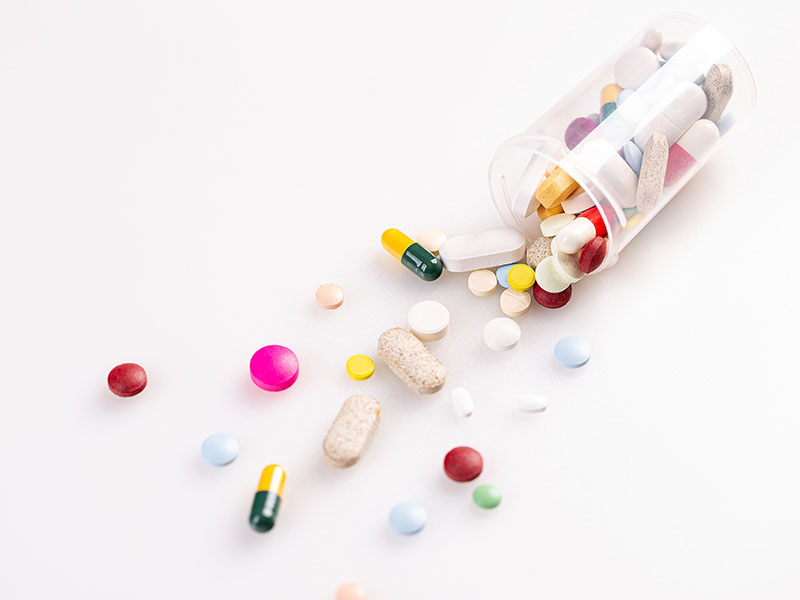
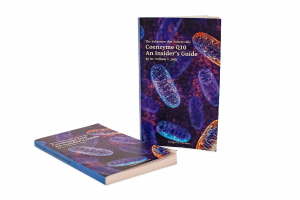
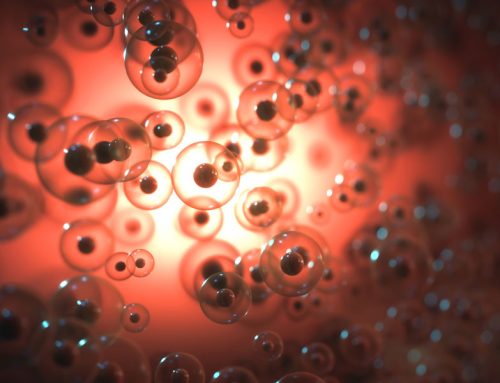
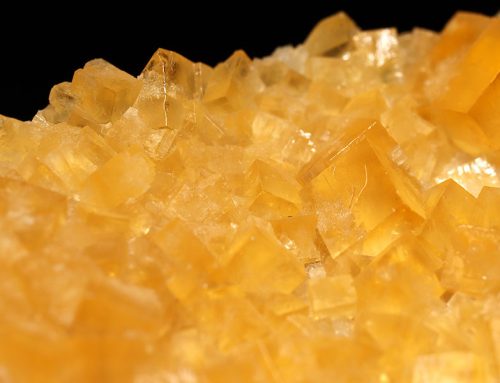
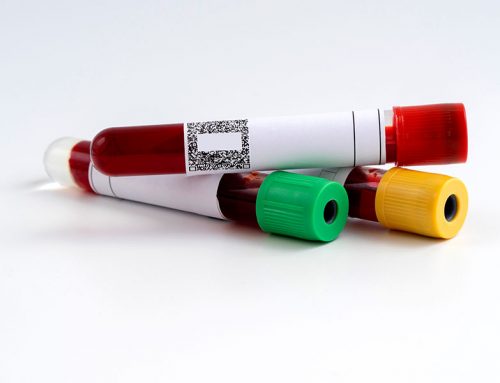
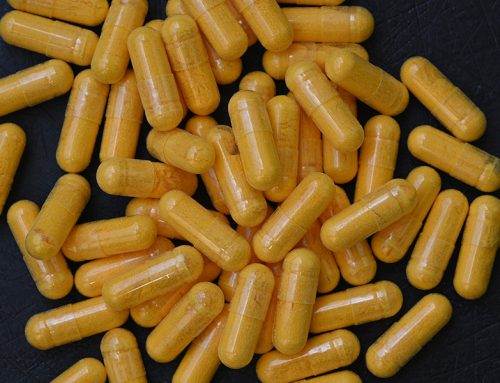
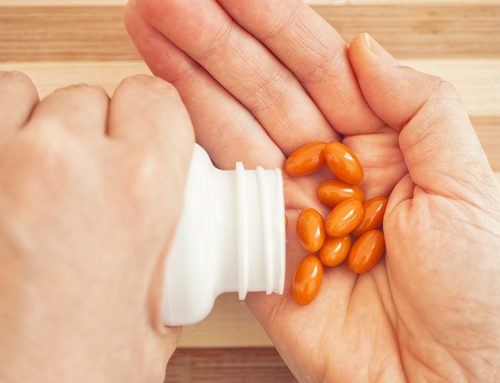

Leave A Comment